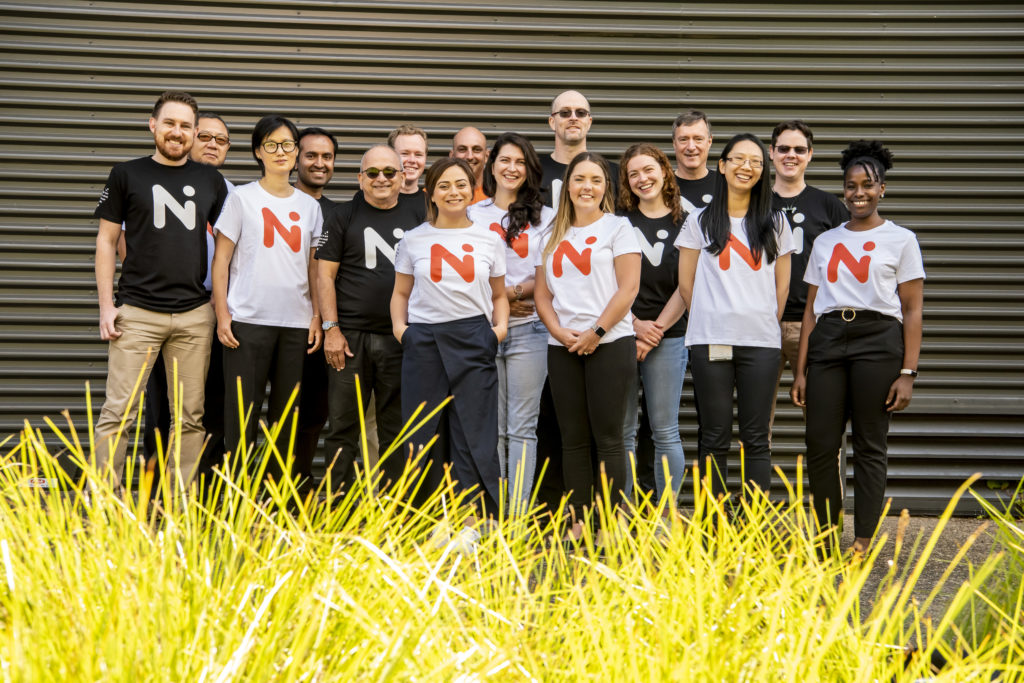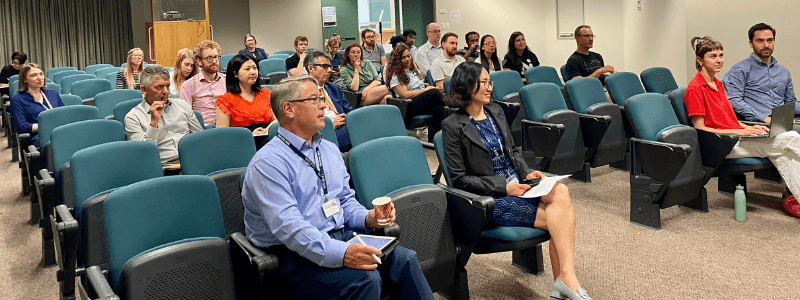After a year of deserted university campuses, it was fantastic to see students returning to their ANU residential colleges and classes in February. While lectures will remain an online experience for many, relaxation of COVID-19 restrictions has meant that small group teaching and laboratories can be now run face-to-face. The flow-on benefits will be substantial, with the vibrant on-campus experience helping ensure students gain the most from their university education while also having the opportunity to forge new friendships and networks.
Vibrancy is also evident in the CEAT Innovation Hub, home to five start-up companies. As I mentioned last month, Nourish Ingredients has formed a partnership with the Research School of Chemistry, with several of their staff also being based in our Innovation Hub. You can read more about Nourish here. By being based in the Hub, all Hub members have the opportunity to take part in events that increase their exposure to investors and industry bodies. An example was this month’s visit to the Hub by representatives from Austrade and AusIndustry, with Hub Members benefiting from advice on how to link with investors and apply for funding schemes available to entrepreneurs. You can read more about this great networking event here.

As CEAT grows and expands its network and ambitions, it is important that we continually broaden our network of expertise. A key component of this strategy is the formation of relationships with leaders in a wide range of domains. With this mind, CEAT has commenced a Fellowship program. You can read more about our most recent Fellow here, where CEAT’s Denise Higgins talks to Rohan Rainbow about the value he sees in being a CEAT Fellow.

Another positive in the last month was news that enrolments in agriculture-related courses are up by 5 to 50 per cent across Australia. The increase is likely linked, in part, to last years’ announcement by the Federal Government to reduce fees for agriculture-related courses by up to 62 per cent. But that is not the whole story. While many industries went into COVID-19 shutdowns, demand for agriculture graduates with skills in technology and business continued apace. In an interview with the ABC, Prof. Jim Pratley (Secretary of the Australia Council of Deans of Agriculture) highlighted the fact that there are three to four jobs per agriculture graduate, with the sector offering an increasing range of high-skilled jobs and positive career prospects. Increasingly, agriculture will need graduates with skills in environmental science, business, computer science, biology, engineering and systems modelling. Graduates will also need skills in how to integrate and adapt knowledge from different disciplines to develop novel solutions to the complex challenges facing agriculture. It was with these issues in mind that ANU recently launched its Master of Science in Agricultural Innovation – a degree that cuts across traditional discipline boundaries to address industry challenges. Translating research and theory into real-world outcomes will be a feature of the degree, with students working in multidisciplinary teams to gain industry-relevant skills and a deep understanding of the challenges facing the agriculture sector. CEAT is proud to be supporting this new educational initiative.
Last week, Science and Technology Australia (STA) were in the news, using a pre-budget submission to call on the government to create a new $2.4 billion fund that would drive research translation and commercialisation. The fund would drive deeper collaboration between universities and business, strengthen sovereign capability and turbo-charge economic recovery and job creation. Investment in a comprehensive, long-term plan for Australian science and technology would be a feature of the fund – something that aligns perfectly with our recently announced proposal for a 10-year, $500 million ‘National Mission for Future Crop and Community Resilience’. That proposal outlines a strategy to use the full interdisciplinary research capabilities of Australia’s universities to significantly increase the productivity growth, climate resilience and environmental sustainability of the cropping sector. Both of these proposals highlight the need for new investment in industry-aligned research, and the need for the Federal Government to take a strong leadership role in forging nation-wide strategies that will help us address the challenges facing Australian industry.
Finally, CEAT recently submitted an application for funding from the Federal Government’s $40 million Strategic University Reform Fund (SURF). SURF is designed to create stronger links between universities, business and industry, with a focus on collaboration with local employers and improving commercialisation of applied research. With only a few weeks to prepare an application, it was fantastic see the entire CEAT team – led by Sarah Adams – work together to prepare a high-quality application. It is a pleasure to work with such a committed team. We are also grateful to have received letters of support from our Hub members, the ACT Chief Minister and our industry partners.
Make sure you read the articles in this month’s newsletter.
Thank you.
Owen Atkin, Director, CEAT.
